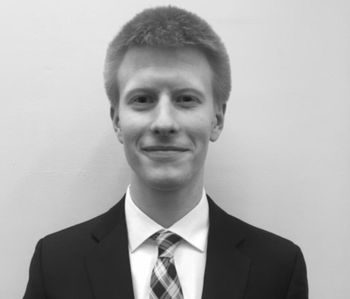SUNY Albany event calls Thanksgiving 'a day of mourning'
A peer education program at SUNY Albany recently held a meeting to discuss how Thanksgiving is allegedly a commemoration of mass murder.
Hosted by the C.H.A.R.G.E. Peer Education Program, posters originally advertised the meeting as “NO THANKS GIVING: Do you know what you are celebrating this Thanksgiving?”
The name of the event was subsequently changed to “Thanks/Friends Giving,” however, after someone complained about the original name.

“We simply wanted to shed light on the Native American experience, and where they were during this time in history,” C.H.A.R.G.E. Director Liery Santos told Campus Reform. “We know the Native Americans were already occupying this part of the world, but now live in reservations. The conditions in these reservations are awful, considering Native Americans were already here.”
The event took place Tuesday night and was sparsely attended. Bibi Chaterateach, a senior at SUNY Albany and C.H.A.R.G.E. member, ran the meeting, which she said was "based on looking at Thanksgiving through the Native American perspective."
Although Thanksgiving takes on different meanings for different groups, she noted that for Native Americans, "Thanksgiving is a day of mourning."
[RELATED: Smith College SJP hosts ‘anti-colonial Thanksgiving’]
To help shed light on the Native American experience, the event highlighted an article in The Final Call explaining why Native Americans view Thanksgiving as a “celebration of genocide.”
Within the article, Mahtowin Munro, co-leader of the United American Indians of New England, claims that “the holiday in reality has bloody roots,” in contrast to “this myth that the wonderful Pilgrims came here from Europe and were so kind and good to the Native people who were here and lived happily ever after.”
Rather, Munro claimed that the real origins of Thanksgiving stem from a proclamation in colonial times giving thanks for the safe return of a militia unit that had massacred 700 Pequots, many of them elders, women, and children.
[RELATED: Universities prepare faculty for ‘catastrophic’ Thanksgiving]
Yet while the story serves as a stark contrast to the conventional tale of Squanto and the Pilgrims holding a feast to celebrate their newfound friendship, neither Pilgrims nor Native Americans have historically factored into presidential Thanksgiving Proclamations.
According to The History Channel, generic proclamations of thanksgiving were issued annually until 1815, when Thomas Jefferson ended the practice for fear of infringing on the separation of church and state.
The practice was revived in 1863 by Abraham Lincoln, who at the height of the Civil War established the fourth Thursday of November as an annual day of “Thanksgiving and Praise to our beneficent Father who dwelleth in the Heavens,” asking citizens to demonstrate “humble penitence for our national perverseness and disobedience” while asking God to “heal the wounds of the nation.”
[RELATED: ‘Anti-Thanksgiving’ potluck sparks controversy on UVA’s campus]
Munro, whose organization hosts an annual “Day of Mourning” to commemorate the struggles of Native Americans, acknowledged the 1863 proclamation establishing Thanksgiving as a national holiday, but argued that it is also important to remember that America’s wealth is built on enslavement, genocide, and theft of indigenous land.
“I think a lot of people want to know the truth about history and what’s going on in this country and Occupy Wall Street is indicative of that, people trying to break free of mental shackles and understand things and speak with each other,” she told Final Call.
Mark Anquoe, a member of the International Indian Treaty Council and American Indian Movement, concurred with Munro, speculating that traditional Thanksgiving narratives actually have a negative psychological impact on Native Americans.
“What happened is not just some harmless lie that can be overlooked with a wink and a smile,” he argued. “The modern practice of Thanksgiving makes mockery of our people and that affects children’s self-esteem and emotional growth.”
[RELATED: FSU Thanksgiving display an ‘all-out assault’ on Pilgrims]
Chaterateach told Campus Reform that C.H.A.R.G.E. seeks "to bring awareness to conversations that need to be had" and "also to build positive experiences...but to make sure [students] are learning.”
"We try to be inclusive...[and] have a safe space for students to come to," she explained.
Follow the author of this article on Twitter: @matt_noyes_

